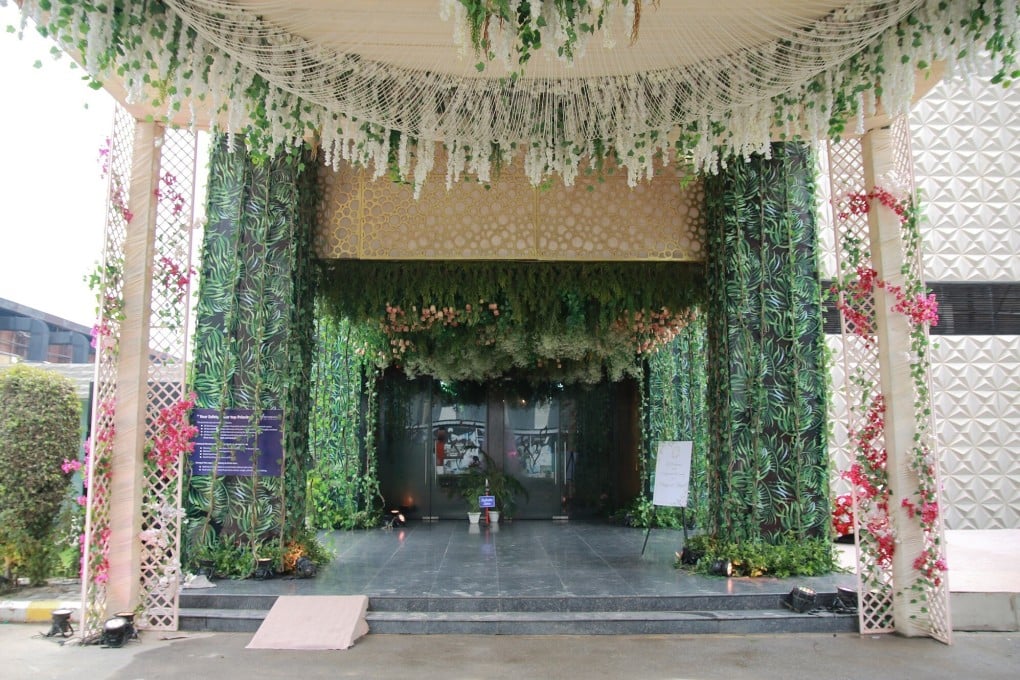More Indian millennials plan green nuptials to avoid ‘mountains of trash’ linked to big fat weddings
- India’s US$50 billion wedding industry is seeing green shoots of revival after a tumultuous pandemic year that led to mass cancellations
- Sustainable weddings are becoming more popular, insiders say, with brides opting for floral jewellery instead of gold, and couples asking for biodegradable cutlery made from banana leaves

Nidhi Paliwal, 30, and Sumeet Kher, 32, are tying the knot next month and an opulent Indian wedding is the last thing they want.
The Delhi-based computer analysts say they’re trying their best to ensure minimal carbon footprint for their big day on December 13.
“The pandemic has ushered in more respect for the planet, so we’re opting for eco-friendly decor items like cane baskets, cane lanterns, plants and flowers, and earthen pots instead of wasteful decor and sets that cost thousands which are then dismantled post-celebrations,” Paliwal said.
The couple has also chosen a local venue to prevent the need for guests to fly in, while the occasion will be a day event, which will help cut on power consumption.
“I’ve also got my mum’s wedding lehnga [billowy dress] repurposed for my big day instead of buying a new one,” said the bride-to-be. “We’re also issuing digital invites instead of opulent wedding cards, as well as natural decor and classic furniture that can be reused in our new home.”
India’s US$50 billion wedding industry is seeing green shoots of revival after a tumultuous pandemic year that led to mass cancellations or couples opting for small ceremonies at home devoid of the glamour usually associated with Indian nuptials.
